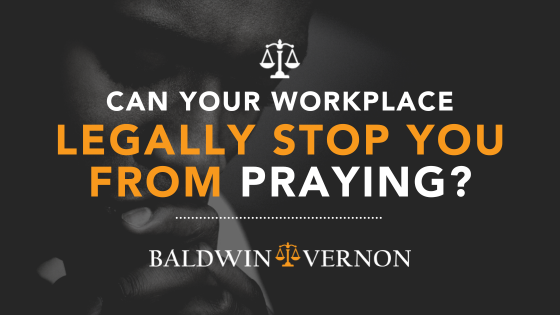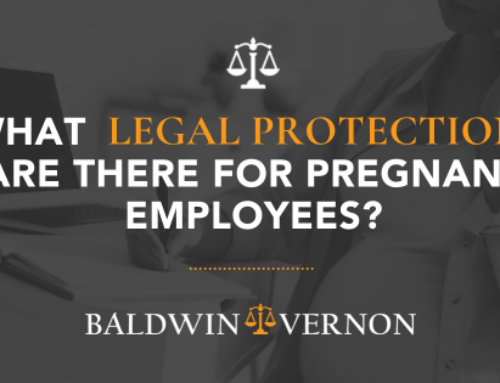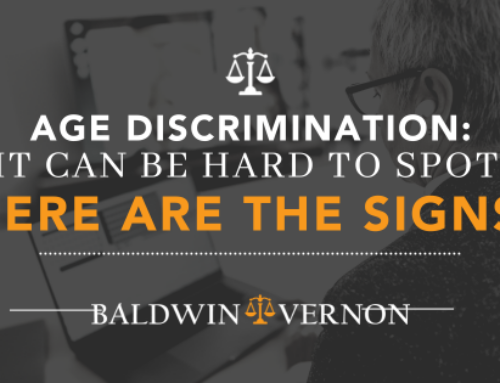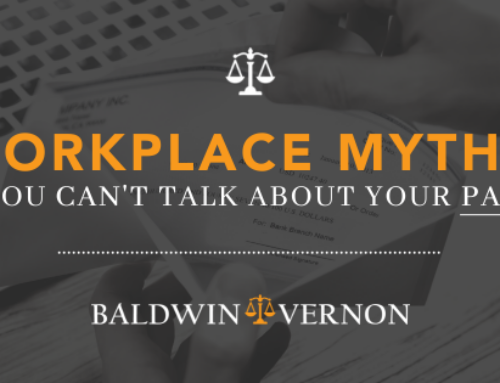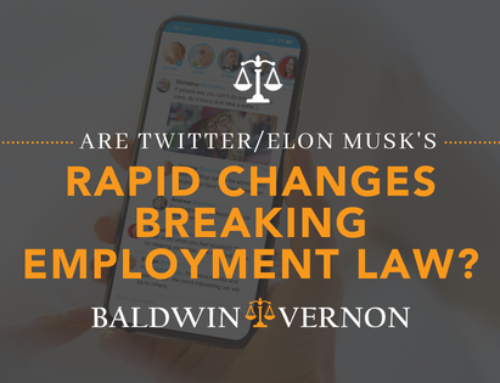Today’s workplace is filled with people of all different backgrounds, which can lead to a melting pot of religions. Thankfully, we live in the United States of America, and our constitution has encouraged us to be welcoming to this for over 200 years. Because not everybody was welcoming, we started enacting laws more than 50 years ago to protect people from racism and discrimination in their place of work. No matter the religion or absence thereof, the United States and Missouri have laws employers must abide by to ensure employees (and employers) feel safe and accommodated.
As noted, however, because workplaces have to be safe and welcoming for ALL religions and even those without a professed religion, employers have the responsibility to provide a safe and accommodating workspace for ALL employees, no matter their religious choice. These days, that can become complicated.
Legally, Employers Can Not Stop You From Praying
Employers are required to accommodate all religions as long as the accommodation is not unreasonable for the business.
Prayer is only complicated when it is public and impacts the rights of other employees. An employer cannot stop you from praying generally, even if they wanted to, because you can pray privately and quietly and not bother anyone else or even be seen. (see Matthew 6:5-8).
Title VII defines religion very broadly, including traditional religions such as Christianity, Islam, Hinduism, Buddhism, and Judaism, while also including religious beliefs that are new and not entirely common yet. However, this act does not cover political, societal, economic philosophies, or personal references as they are not believed to be “religious.”
However, There Are Legal Situations Where They Can Stop You From Engaging in Religious Conduct That Interferes With the Job.
With all of that said, there are singular situations where an employer can prohibit public prayer or religious actions in the workplace. If the religious accommodation will place a burden or undue hardship on the business, employer/employees, or customers, the employer has the right to decline. For example, a person praying out loud to a specific god, calling on others in the workplace to join in – that can be off-putting to co-workers who pray to a different god or who prefer not to pray to any god. Such public professions of faith can disrupt the workplace. You need only look at the current news headlines to see how religious choices in other countries can lead to bloodshed.
If a religious accommodation or expression disrupts or threatens a fellow colleague’s work, this could allow the employer to stop it. Additionally, if the employee harasses, questions, or tries to convert customers or co-workers while on the job, the employer can step in.
Undue hardship can also mean that the religious accommodations lead to a violation of the seniority system, a lack of staffing, jeopardizing health and safety, and costing an employer more than a minimum amount. Employers should decide accommodations on a case-by-case basis to ensure no promises are made in case of scheduling errors or hardship.
Undue hardship can be seen in many ways, causing employers to decide that religion should be kept within one’s cubicles rather than in public groups in the workplace. If employers see that it might cause distraction or issues with others in the office, outwardly practicing religion might be placed off limits by a business to advocate for a level playing field and to keep divisiveness out of the workplace. So, while an employer can engage in an interactive accommodation process to see if they can find a way to accommodate Muslim prayers with breaks and a private place, they are also allowed to tell employees of all faiths that they have to keep their religious opinions to themselves and even outright ban proselytizing if they see fit in the eyes of undue hardship.
Additionally, religious prayer can not be forced onto other employees or vice versa; employees can not prevent other employees from contributing in a prayer group. If an employer runs a sponsored prayer group and some employees choose not to go, employers cannot retaliate against people for not participating. Situations like these must be volunteer-based to ensure rights are upheld and people’s comfort is accounted for. If retaliation were to occur by means of shift reassignments, decreased salary, demotion, or otherwise, employees might have a foundation to file against their employer.
Smart lawyers encourage their employer clients to avoid any organized religious profession or practice in the workplace in order to prevent the perception of religious favoritism and, therefore, lawsuits. You practice your religion in the workplace by living up to the morals and ideals of your religion and treating others with respect and kindness. You may have to save proselytizing for outside the workplace.
Overall, everyone in this country is free to practice their religion, and Title VII ensures the government does not get in the way. However, fine-tuning will occur within the workplace depending on what the employer sees fit for the people in their business.
How an Employer Can Accommodate Prayer
Many accommodations can be made within the workplace, but it is important to remember these accommodations can be revised to ensure surrounding people are not put under undue hardship.
- Exceptions to the workplace dress code. I.E., an employee wearing a religious headdress or a woman who cannot wear trousers.
- Flexible scheduling to those who might miss work for Good Friday, Sabbath, or other religious beliefs.
- Job reassignments when accommodations can not be made.
- Finding a silent area or room for those who have daily prayer times.
While these are all appropriate within Title VII, employers have the right to alter accommodations if workplace conditions change. For example, suppose daily prayer for Muslim employees is typically in the meeting room, but today, they have to use the meeting room for a budget roundtable. In that case, employers have the right to move prayer to another break room. Changes can be brought up and discussed to ensure appropriate solutions are made.
If you have questions or feel as if your employers have not met your prayer accommodations, contact the team at Baldwin & Vernon.


